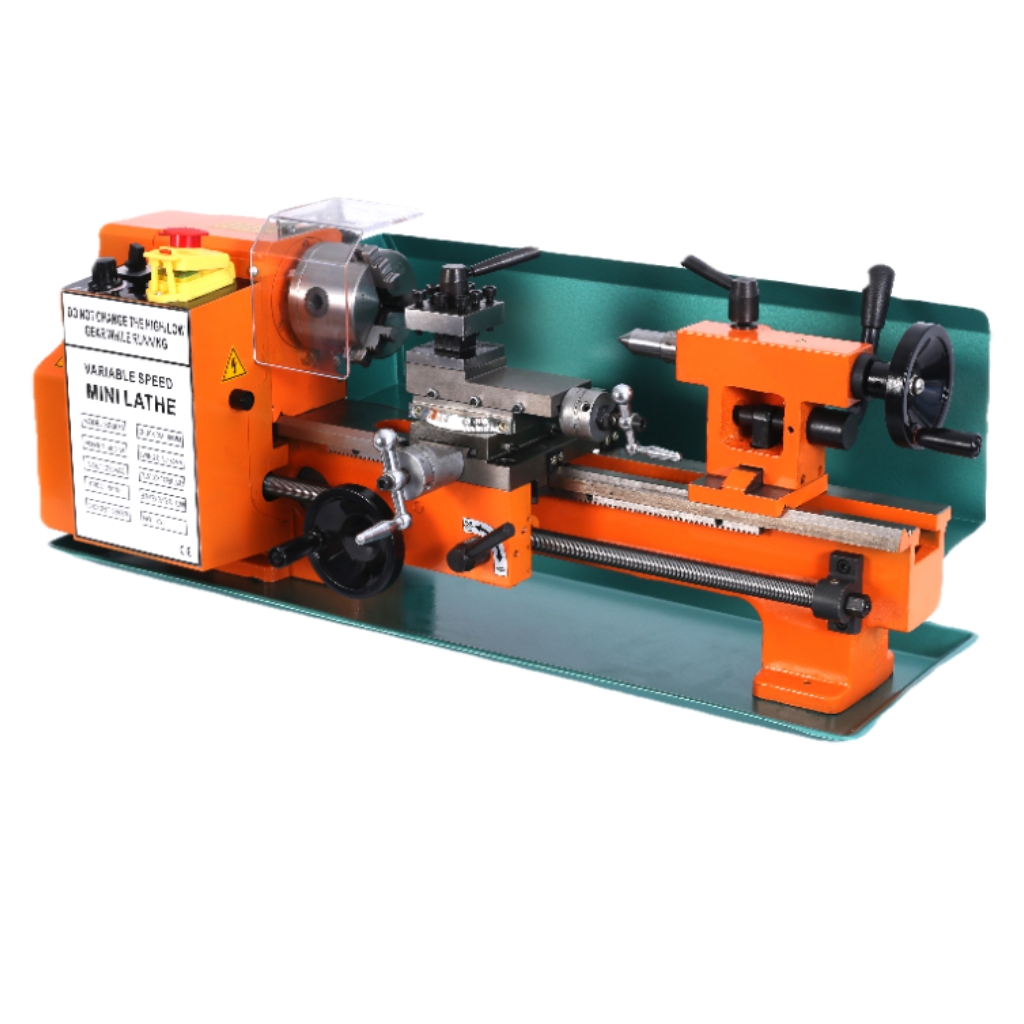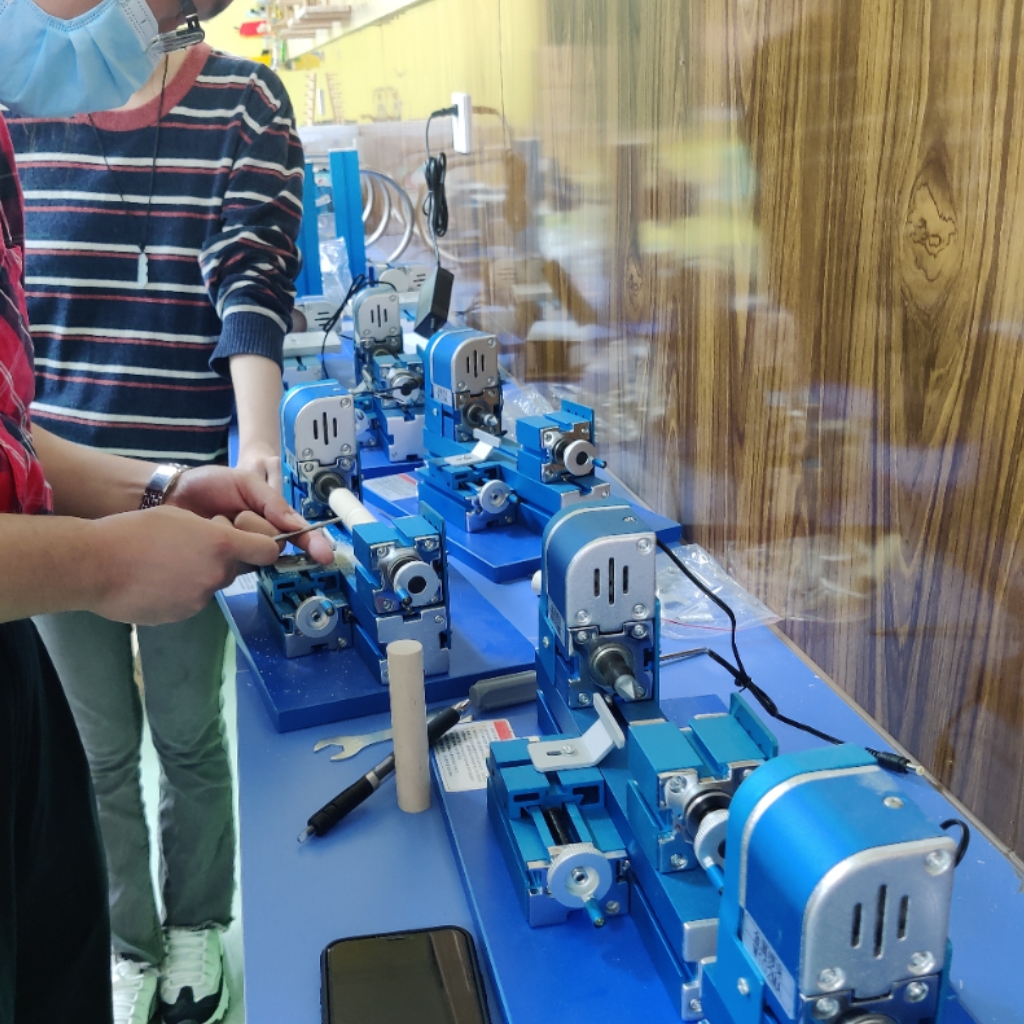Blog
Xendoll has 22 years of experience in the production of small machine tools. We will help you choose the suitable machine and share our experience in CNC machining with you.
 May 27, 2025
May 27, 2025

 1117
1117
In the evolving landscape of STEM education, hands-on learning tools like milling machines and mini lathes are becoming indispensable. These devices empower students to bridge theoretical knowledge with practical skills, fostering innovation and problem-solving abilities. A critical component of modern milling machines—especially those designed for educational use—is the MDI (Manual Data Input) controller. This article explores what an MDI controller is, how it functions in milling machines, and why it is a game-changer for STEM-focused programs using compact, precision tools like Xendoll Tools' mini lathes.
Section 1: Understanding the MDI Controller
What is an MDI Controller?
An MDI controller is a semi-automated interface on milling machines that allows users to input short, manual commands to execute specific operations. Unlike fully automated CNC (Computer Numerical Control) systems, which rely on pre-programmed code for complex tasks, MDI mode provides a middle ground. Users can type simple instructions (e.g., moving the spindle to a specific coordinate or drilling a hole) without needing advanced programming expertise.
Key Features of MDI Controllers:
User-Friendly Input: Commands are entered via a keypad or touchscreen, making it accessible even for beginners.
Real-Time Execution: Actions are performed immediately after input, enabling quick adjustments.
Versatility: Combines manual control with basic automation for tasks like drilling, threading, or contouring.
For STEM education, MDI controllers simplify the transition from manual machining to CNC programming, allowing students to grasp foundational concepts before advancing to complex workflows.

Section 2: The Role of MDI-Enabled Mini Lathes in STEM Education
Why Mini Lathes and Milling Machines?
Compact machines like Xendoll Tools' mini lathes are ideal for classrooms and workshops due to their safety, affordability, and space efficiency. When equipped with MDI controllers, these tools become even more powerful for teaching STEM principles:
Skill Development:
Students learn to interpret technical drawings, measure materials, and execute precise cuts using MDI commands.
Familiarity with MDI prepares learners for advanced CNC systems used in industries like aerospace and automotive manufacturing.
Encouraging Creativity:
By inputting custom coordinates or feed rates, students experiment with designs while understanding the cause-and-effect relationship between commands and machine behavior.
Safety and Supervision:
MDI mode minimizes risks associated with fully manual operations. Instructors can oversee inputted commands before execution, ensuring safe learning environments.
Section 3: Integrating MDI Controllers into STEM Curricula
Practical Applications for Educators
Educators can design projects that leverage MDI controllers to teach interdisciplinary concepts:
Mathematics: Calculating coordinates, angles, and feed rates reinforces geometry and algebra.
Engineering: Students design and prototype parts, learning about tolerances and material properties.
Computer Science: MDI introduces basic coding logic, laying the groundwork for CNC G-code programming.
Case Study: Xendoll Tools in Action
A vocational school in Germany integrated Xendoll’s MDI-equipped mini lathes into its robotics program. Students used MDI commands to mill custom gears for their projects, combining mechanical engineering with automation basics. The result? Improved engagement and a 40% increase in technical proficiency scores.
Section 4: Advantages of MDI Controllers Over Traditional Methods
Reduced Learning Curve:
Unlike full CNC systems, MDI doesn’t overwhelm beginners with intricate programming.
Cost-Effectiveness:
Schools and hobbyists can avoid expensive software licenses while still accessing semi-automated features.
Scalability:
As students master MDI, they naturally progress to CNC workflows, making the equipment a long-term investment.

The MDI controller on a milling machine is more than just a technical feature—it’s a catalyst for effective STEM education. By blending manual control with automated precision, tools like Xendoll Tools' mini lathes empower students to explore machining fundamentals safely and creatively. For educators aiming to equip the next generation of engineers and technicians, integrating MDI-enabled machines into curricula is a strategic step toward fostering innovation, critical thinking, and real-world problem-solving skills.
Whether you’re a mechanical distributor, an educational equipment provider, or a machining enthusiast, understanding the value of MDI technology ensures you stay ahead in a world where hands-on STEM skills are in high demand.
For details, please refer to the following link:
https://www.xendolltools.com/category/micro-cnc-machine.html



 Show all our samples
Show all our samples
 Provide you with a free quote
Provide you with a free quote
 Answer all the questions you may have
Answer all the questions you may have
 Guided installation and other options
Guided installation and other options